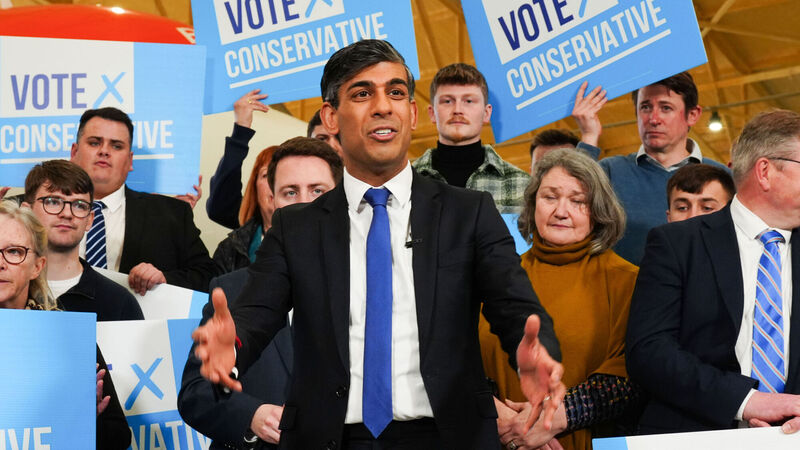Irish Examiner view: Sunak's party in a political cul-de-sac

British prime minister Rishi Sunak in Teesside, celebrating with Lord Ben Houchen following his re-election as Tees Valley Mayor, last Friday. Picture: Owen Humphreys/PA
Savage election reversals, immigration chaos, a crisis-ridden health service and multiple policies which have led the party up a political cul-de-sac. It’s not been a good time for the Conservative Party recently.
Badly mauled in the mayoral and local elections last week and heading into a general election, where it appears nothing other than ignominious voter rejection awaits, British prime minister Rishi Sunak and his embattled government seem paralysed by the realisation that only political doom is on their horizon.
















